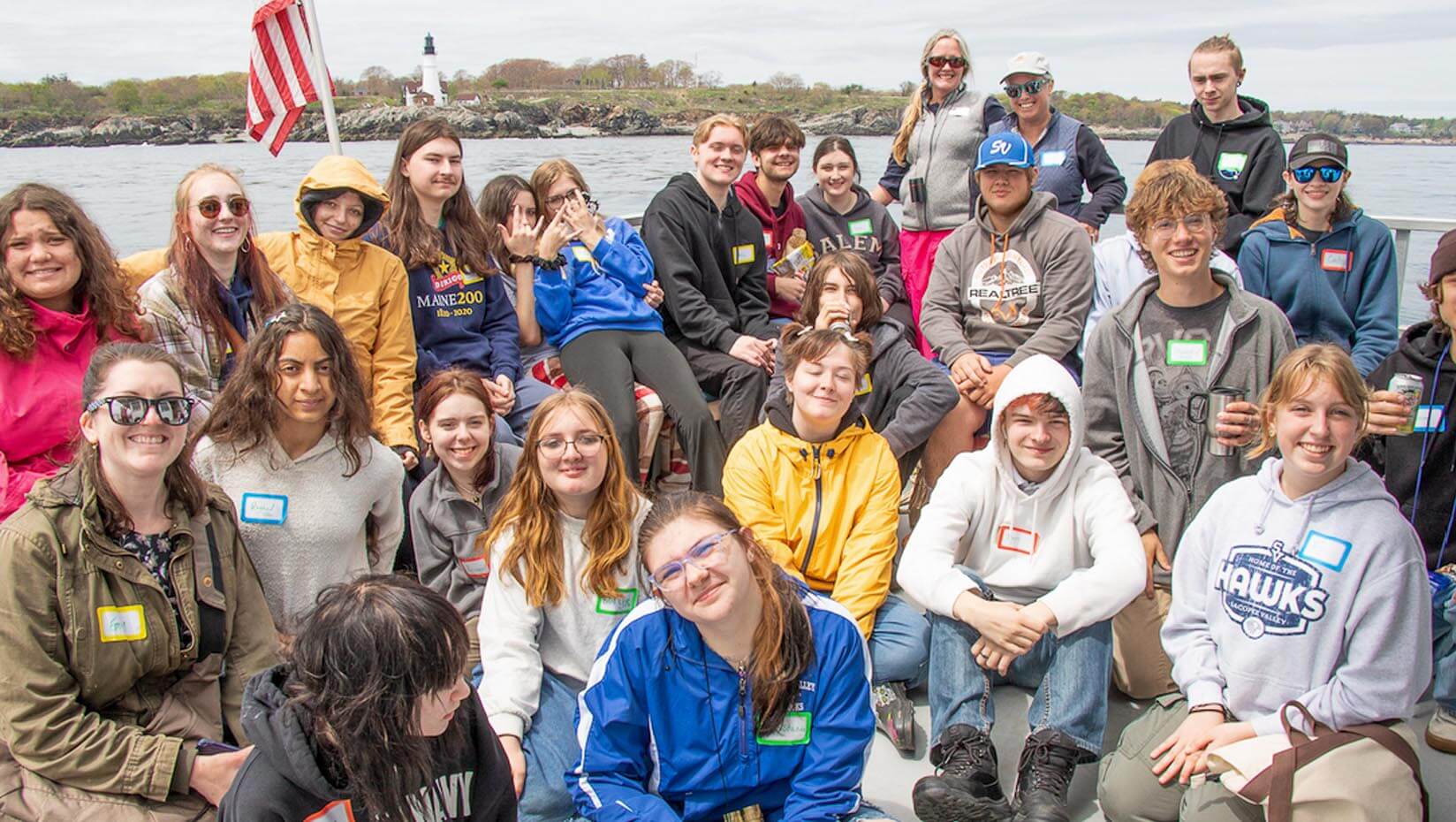
All aboard, inland schools! Sea Grant program brings students to the waterfront
An educational program led by Maine Sea Grant at the University of Maine bridges the gap between inland and coastal Maine, giving students from rural communities hands-on access to the state’s vital marine ecosystems.
Since its launch in fall 2023, the “Bringing the Sea to Inland and Rural Youth” initiative connected nearly 400 middle and high school students with cutting-edge aquaculture practices, marine science careers and Maine’s coastal heritage. Many students had never seen the ocean, let alone stepped aboard a boat.
Following the successful pilot year, which included five additional field trips this past fall, the program is gearing up for spring 2025 activities. Schools interested in participating in the “Bringing the Sea to Inland and Rural Youth” program can contact Keri Kaczor at keri.kaczor@maine.edu or 207.974.9502.
For students like those at Sacopee Valley High School, who live 40 miles from the coast, their day on Casco Bay was a revelation.
“I was pleasantly surprised at how many experts were willing to come with us and give our students so much information. Everyone was willing to share, answer questions and just generally seemed to enjoy working with the students. It was awesome!” said Elizabeth Sanborn, extended learning opportunities coordinator at Sacopee Valley High School.
Experiences like these reshape students’ perspectives and inspire them to consider futures in science, aquaculture and environmental stewardship.
In fall 2024, each of the five participating schools were classified as vulnerable, overburdened and/or underserved. Through field trips, classroom visits and mentorship from Maine Sea Grant experts, students gain the knowledge and confidence to envision a broader range of academic and career possibilities.
“This program is about much more than field trips,” said Kaczor, environmental literacy and workforce development manager at Maine Sea Grant. “It’s about connecting rural youth to the Gulf of Maine and showing them how their futures can be tied to Maine’s growing marine economy. Whether it’s a career in fisheries or aquaculture, sustainability or marine science, we want these students to explore opportunities they would not have imagined otherwise.”
Read an in-depth story about the Bringing the Sea to Inland and Rural Youth program on the Maine Sea Grant website.
Given aquaculture’s growing importance to Maine’s economy, the program’s focus on that industry is particularly timely. By introducing students to careers in the blue economy — industries that use ocean resources for economic growth without jeopardizing the environment, Maine Sea Grant is working to bolster its workforce.
This program is one of many examples of how UMaine, Maine Sea Grant and University of Maine Cooperative Extension are preserving and propelling the state’s blue economy. Through innovation and workforce development, they broaden insight into ecological and sociological changes that affect the state’s coastal communities and businesses. UMaine faculty and students are also exploring opportunities for new sectors and markets and investigating potential resources to mitigate the ramifications of climate change.
Bolstering these efforts is the UMaine Marine Aligned Research, Innovation, and Nationally-recognized Education (MARINE) Initiative, which fosters collaboration and synergy among researchers, industry, government and communities. Together, they integrate and innovate transdisciplinary marine research, education and outreach to enhance the socioeconomic well-being of people in Maine and beyond.
Contact: Erin Miller, erin.miller@maine.edu
